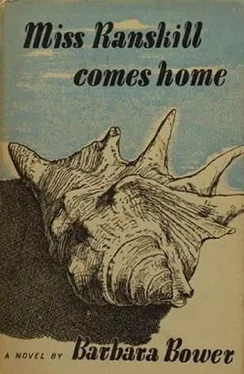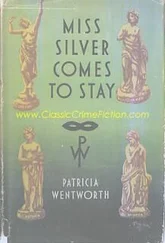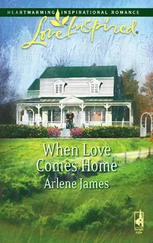‘And which room shall I get ready?’
There was just a hint of hurt disapproval in the voice.
‘Oh! the little south room, please . It isn’t for Miss Edith. I must go now. I – I’ll explain when I come back.’
She must go now, even though she might have to wait for the train. She must go before the matter-of-factness of everyday things smothered the sense of power within her, before the mockery of reason killed the compelling instinct; and made her slave to what Emma might think if she chanced to return alone in the evening.
‘Don’t forget your mackintosh, Miss.’
III
She had not, until she stood for the second time in her life outside the Carpenter’s cottage, thought what she must say or how she could explain her anxiety over the boy.
There was nothing about the cottage to hint at any tragedy. Indeed, it was more like the cottage she had seen as the Carpenter talked, than the one she had entered a few months ago.
White curtains hung crisply between frames of glossy green paint. The doorstep was whitened; the knocker gleamed so that it showed a little contorted reflection of her face.
She thought, as she waited for the knock to be answered, that perhaps she had misjudged the Carpenter’s wife. Women, like houses, have their off days. There was nothing slovenly now about the house or about the diamond-shaped beds on either side of the door. They had been freshly forked and the edging of little green plants lay in tranquillity, waiting for spring.
Footsteps sounded along the passage within and Miss Ranskill strained her ears. The footsteps were quick and light, but they did not suggest a boy’s movements – a boy would walk more stumpily.
The door opened and she looked into the face of a stranger – a pleasant, well-washed face.
‘Is Mrs Reid in?’
‘Mrs Reid doesn’t live here now.’
‘Oh!’ Miss Ranskill’s voice was flat. ‘Do you mean she’s left the village?’
‘No, she and her husband have taken one of the new bungalows in Westley Road.’
‘Her husband?’
‘She’s married again. Let me see now, she married about six weeks ago. I doubt if you’d find her in this morning, though, but you might try.’
Married again? Miss Ranskill wondered if Mrs Reid had married the gross-faced man who had interrupted the song heard in the sea-shell. She understood now why the cottage was so transformed.
‘The name’s Amery now. Amery, Woodway, Westley Road. You can’t mistake the bungalow. It’s right at the end, and it’s got yellow railings. Do you know Westley Road?’
‘No, I’m afraid I don’t.’
Miss Ranskill felt dazed as she listened to the directions, and that was not because they were complicated. She felt that the Carpenter had suffered yet another death. There was so little of his pride left.
Then the voices of boys, shouting to one another on the other side of the road, reminded her that it was Saturday morning.
‘First right, then left, and it’s on the right-hand side at the far end of the road. As I say, I shouldn’t think she’d be in this morning, but there’s no telling with her.’
The face of the speaker was not quite so pleasant now and the last words were spoken rather viciously.
‘Perhaps the boy, Colin, perhaps he’ll be in.’
‘He won’t be in – not this morning . If it’s the boy you want, you can save yourself the trouble.’
‘He isn’t ill, is he?’
‘No, he’s not ill , wasn’t yesterday, anyway.’
The new owner of the house stepped back a pace, but there was reluctance in her tread. Her lips were pursed and she shook her head knowingly.
‘If you want to know about Colin you’d best ask his mother. I’ve had trouble enough with the lot of them. I’d sooner not say anything than have her throwing it up at me that I’ve been talking. If you ask me, though, she’s nobody to blame but herself. I wash my hands of the lot of them.’
‘Well,’ Miss Ranskill turned to go, ‘I’m sorry to have bothered you. I hope–’
‘I’d sooner not say . Good morning.’
Miss Ranskill was left alone in the narrow strip of garden. First to the right. Her feet rustled through dead leaves as the wind whistled up the broad street of the village.
She passed a group of boys playing ‘conkers’ and thought she heard the name Colin.
He wasn’t ill, but he wouldn’t be in this morning. That ought to be natural enough. The wind had blown the rain away and other boys were out at play. She came on another group of them as she turned the corner, but the stocky figure of the Carpenter’s son was not among them.
A red-haired boy was twirling his conker on a string and shouting:
‘Anyone else want his block knocked off? I’ve beat you all same as I always does.’
‘No, you don’t.’ A shrill-voiced child with greyish-golden hair was piercing another chestnut. ‘You’ve not beat Colin yet!’
‘Yes, I have.’
‘No, you’ve not.’
Another child shouted.
‘Bet you Colin’d like to be playing “conkers” this morning.’
‘Not half he wouldn’t.’ The fair boy swung his chestnut and rapped his neighbour on the head. ‘My Dad says Colin’ll never come back.’
‘Go on!’
‘Go on yourself!’
Miss Ranskill, shuffling through the wayside leaves, felt as though she were walking in a nightmare. She must hurry, but it seemed to her that her legs were moving ridiculously slowly. They would not stretch far enough. Her feet, cramped by shoes, were inelastic. She began to run at a jog-trot.
At last she reached the bungalow with the yellow railings. The gate was open. She forced herself to walk slowly up the cinder path. It would be silly to be breathless when she arrived and unable to speak except in gasps, but she was still gasping a little when she pressed the bell.
For a long time there was silence, or rather a series of silences, punctuated by Miss Ranskill’s frequent ringing of the bell. Yet, although there was neither response nor promise of it, she felt certain that someone was inside. It was almost as though the house were breathing and asserting its habitation. She looked at the lace-hung window to the right of the door and saw that the curtain was moving. It was being more closely drawn from inside. She caught a glimpse of reddened finger-nails. Then she turned to the door again. This time she hammered as well as ringing.
At last her insistence won, and she heard shuffling reluctant footsteps. The door opened chink by chink and the Carpenter’s wife; no, Mr Amery’s wife looked out furtively. Her face, under its thick coating of powder, was puffy and the eyelids were reddened.
‘What is it now?’ The voice was weary and petulant.
‘Don’t you remember me? I’m Miss Ranskill. I called to see you a few months ago.’
‘I remember all right.’
‘I came because I wondered–’ And then because the face looked so dreadfully unhappy and lifeless, Miss Ranskill ended impulsively. ‘Is there anything I can do to help?’
‘It’s all right, thank you.’
Voices sounded in the road behind – the shrill lively voices of boys, heartless in their exuberance.
Mrs Amery opened the door a little wider and spoke reluctantly.
‘You’d best come in for a minute, if you don’t want to go. I don’t want all that lot standing around and gaping. We’ve had about enough of them.’
A cat-call shrilled from the road. It was followed by another one, and Miss Ranskill went into the house.
She followed her hostess into a small pretentious sitting-room. Coloured crinkled paper filled the grate. A vase of artificial roses stood beside a biscuit-barrel on a fumed oak dresser. The chairs were upholstered in green plush. Nothing was familiar except the clock in the centre of the mantelpiece and the great sea-shell that lay beside it.
Читать дальше












